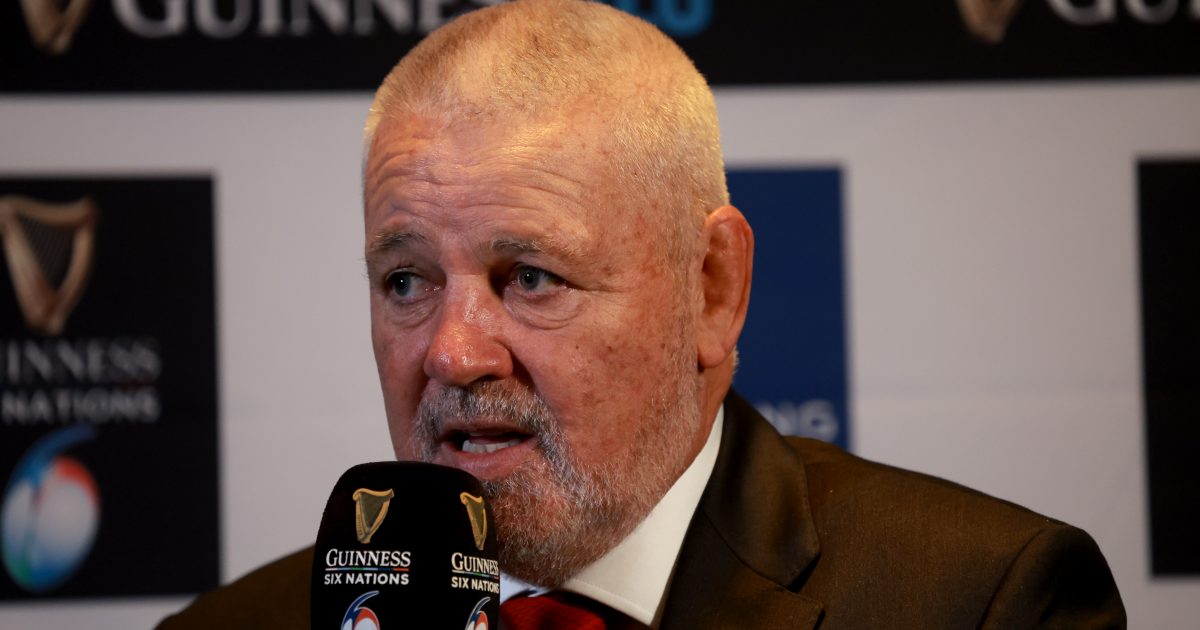Warren Gatland warns about writing off Wales in this year's Championship

Warren Gatland says he is excited about developing a new generation of talent that will start with this season’s Guinness Six Nations campaign.
Gatland has named five uncapped players in his squad for the tournament, with 21-year-old Exeter lock Dafydd Jenkins taking over from an injured Jac Morgan as captain.
Morgan and his World Cup co-skipper Dewi Lake are long-term absentees, while injury has also sidelined number eight Taulupe Faletau, star wing Louis Rees-Zammit has quit rugby to try and forge a career in American football, and the likes of Dan Biggar and Leigh Halfpenny have retired from Test rugby.
Almost half of Gatland’s 34-strong squad have not yet hit double figures in terms of caps, and that collective inexperience has contributed to Wales being written off in many quarters as genuine Six Nations contenders.
“What I have looked at with where we are at right now is we have a group of really talented young players and a couple who are injured at the moment in Jac Morgan and Dewi Lake, who I think are going to be world-class,” said Wales head coach Gatland, speaking at the Six Nations media launch in Dublin.
“I see this as a chance to mould some talented youngsters and give them an opportunity to take control of how they want this team to operate in terms of working with the coaches and setting standards. That is what really excites me.
“We go into the Six Nations with people probably not having too much expectation on us or writing us off, and that is always a nice position to be in.
“It is often said about Wales that you write us off at your peril, because we will work incredibly hard.
“It’s one game at a time, and if we start well against Scotland we will build confidence and momentum. The thing with Welsh players is they become incredibly tough to beat, and that is what I am pinning my hopes on anyway.”
Although Welsh regional rugby is currently operating in a testing financial climate that continues to hit all four professional teams, Gatland is upbeat about developing a largely new-look playing group.
Wales kick off their campaign against Scotland on February 3 – then face successive appointments with England, Ireland and France – and Gatland knows that momentum is key.
“There is a bit of doom and gloom, and people will take that narrative, but I don’t see it like that,” he added.
“I see it as a reset of the regions financially, with the support of the union (Welsh Rugby Union), and the 19, 20 and 21-year-olds now have an opportunity they wouldn’t have had in the past.
“Of all the Tier One nations we are the one with the smallest playing base, so when we see some talent sometimes we’ve got to expose them and see if you can fast-track them.
“It is not about age or experience, it is about allowing that talent to develop.
“It is definitely thinking about the future – not just for this cycle and the next World Cup, but the one after.
“We’ve got five new caps and eight who have never played in the Six Nations. They will learn and develop from that experience, but that doesn’t mean we are not taking the competition seriously.
“Our first game against Scotland is incredibly important. It is one game at a time, and the first one is hugely-important for us at home.”






































































